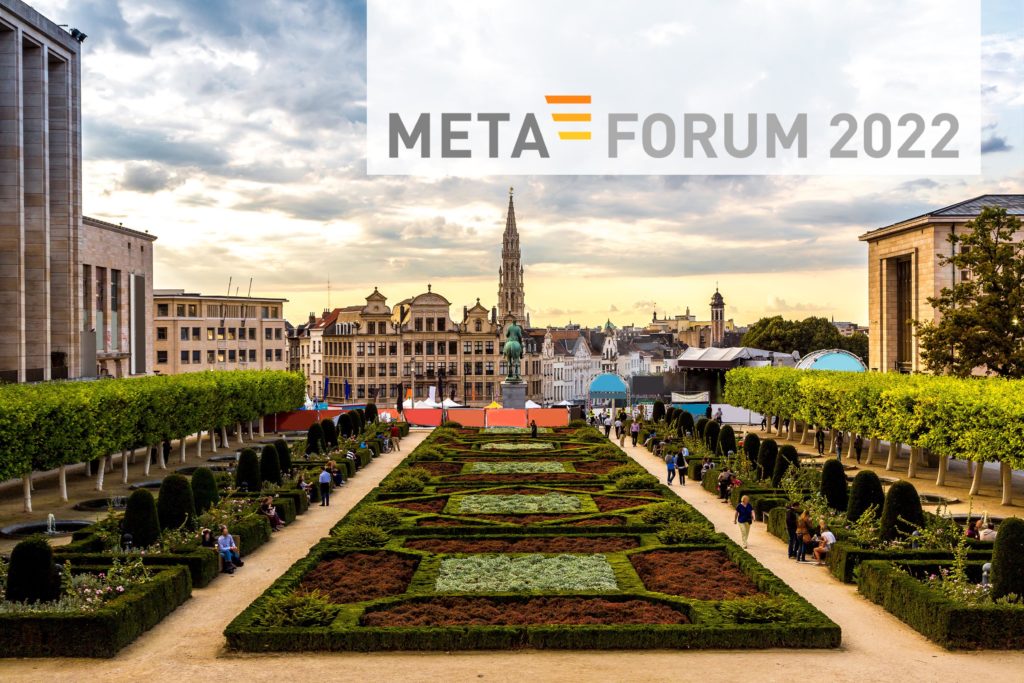
Three years after the last in-person meeting, the annual European conference on Language Technology returns to Brussels: META-FORUM 2022 takes place as a hybrid event on 8 and 9 June and focuses on “Joining the European Language Grid – Together Towards Digital Language Equality”. The conference presents the results of the European Language Grid and European Language Equality projects, but also includes highlights such as an LT industry session and insights into the needs and future demands of the European Language Technology community. Registration for online and on-site participation is open and, as usual, free of charge.
The 11th META-FORUM will be a very special edition of the international conference series on powerful and innovative language technologies for the information society: With both projects, European Language Grid and European Language Equality, coming to an end in June, the two-day event will be divided into presentations of the final results of the two initiatives, their continuation and the next steps. META-FORUM 2022: Joining the European Language Grid – Together Towards European Language Equality takes place on 8 and 9 June 2022 in Brussels as well as online and is as usual free of charge.
The first conference day will be devoted to the European Language Grid as well as the European Language Technology (LT) industry, with highlights such as a demonstration of the newest ELG platform and its features and use cases, a panel discussion on language-centric Artificial Intelligence (AI), an LT industry session, an outlook on the future of ELG and more. On the second day, the focus lies on the results and continuation of the European Language Equality project. The project team will present the measurement and monitoring of Digital Language Equality over the next years, in order to achieve the goal of full Digital Language Equality in Europe by 2030. A strategic research agenda according to this goal will be presented at META-FORUM 2022 and illustrated with numerous project results, such as the state of national LT and AI strategies in Europe and a demonstration of the Digital Language Equality Metric and Dashboard.
Georg Rehm, coordinator of ELG and co-coordinator of ELE: “We are extremely happy to return to Brussels for META-FORUM 2022 to celebrate the successful end of our two projects. For both of them, this year’s conference is more of a milestone than a curtain call. With the newest release of the ELG platform, a wide array of findings on the state of Digital Language Equality in Europe and a range of speakers from industry and research, the 11th META-FORUM will be more insightful and – thanks to its hybrid form – more accessible to the European LT community than ever. For both projects, we will also present our plans for the next steps and continuation of the initiatives.”
The registration is, as usual, free of charge. For further information, the full programme and the opportunity to register, please visit www.meta-forum.eu. Current updates about the conference and the named initiatives are shared through the European Language Technology social media channels on Twitter and LinkedIn and featured in the ELT Newsletter.
Overview
META-FORUM 2022
Joining the European Language Grid – Towards Digital Language Equality
Hybrid conference
BluePoint Brussels (Boulevard Auguste Reyers 80, 1030 Brussels) and online
8-9 June 2022
Free of charge
Programme, info and registration:
www.meta-forum.eu
Contact
Prof. Dr. Georg Rehm
Coordinator European Language Grid, Co-Coordinator European Language Equality
German Research Center for Artificial Intelligence (DFKI)
Speech and Language Technology (SLT)
Georg.Rehm@dfki.de
+49 30 23895 1833